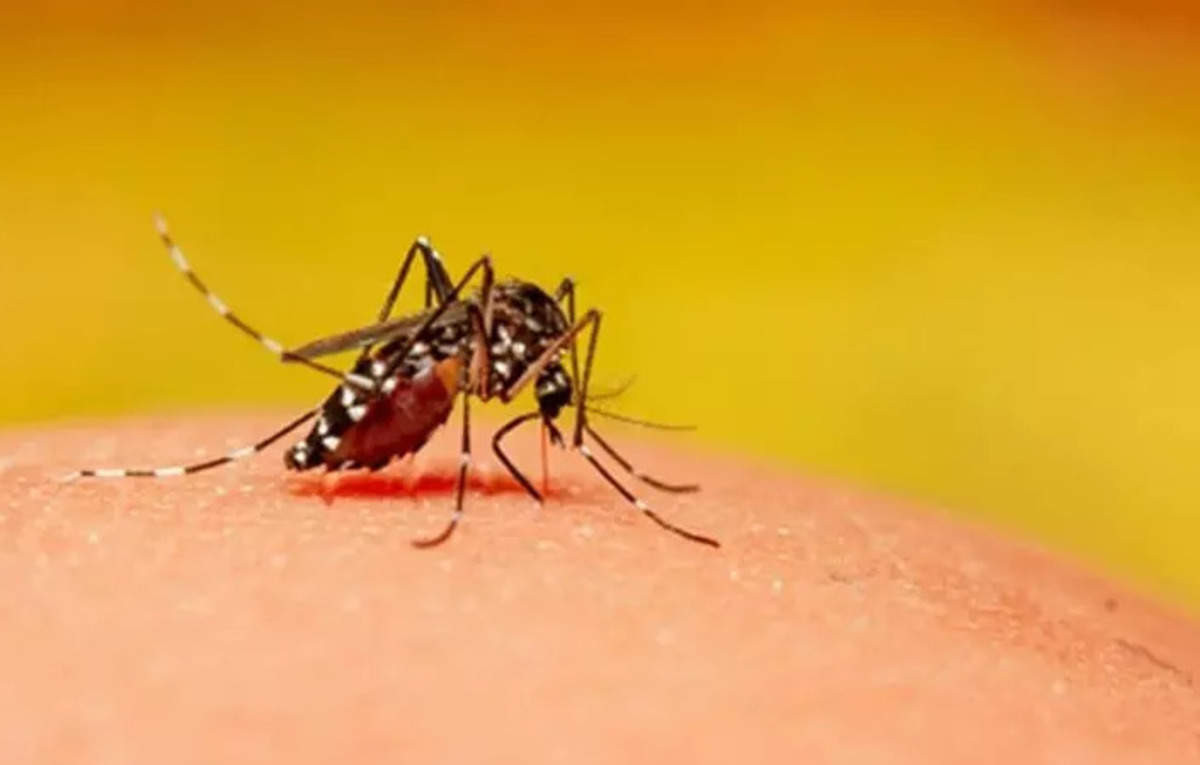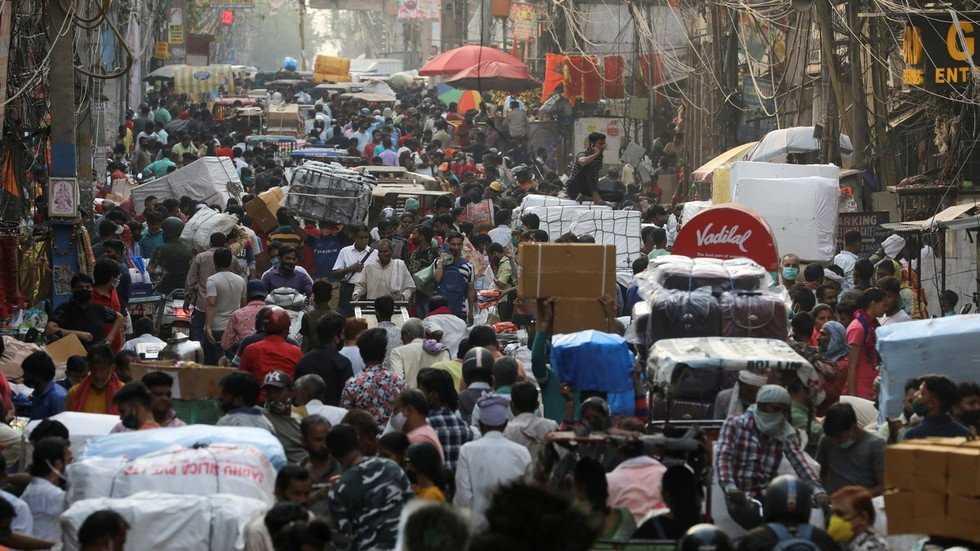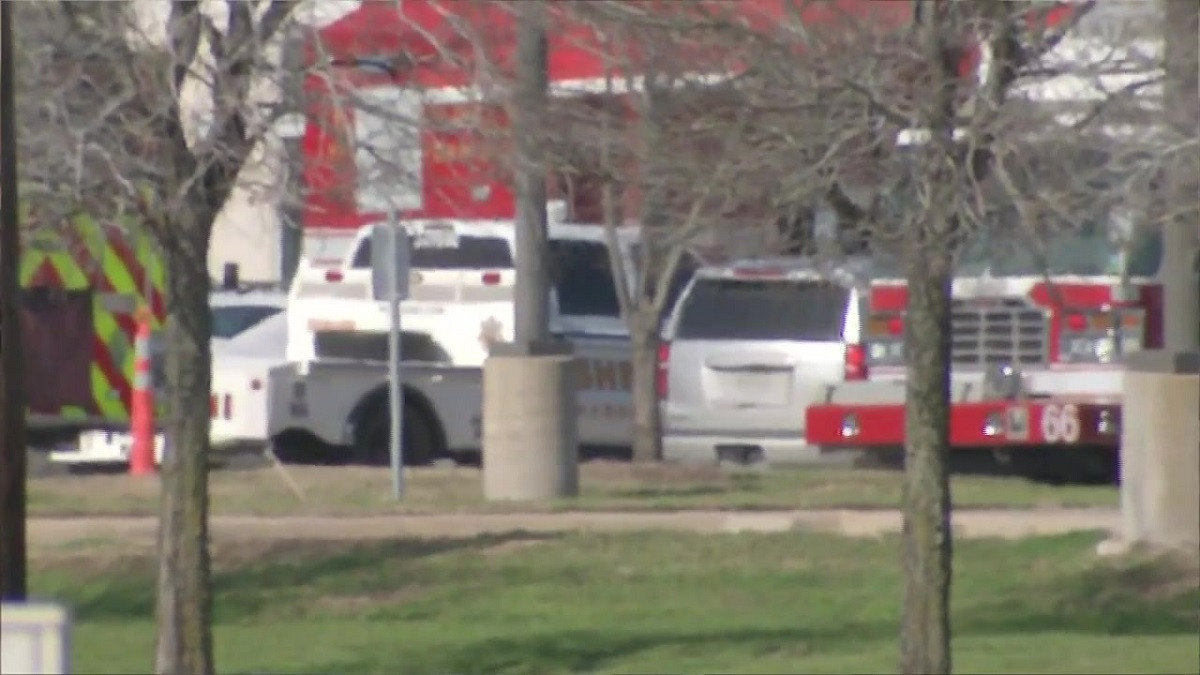A coastal town in Massachusetts is shutting its parks, playgrounds, and fields from dusk to dawn due to concerns about the mosquito-borne virus Eastern equine encephalitis (EEE).
Plymouth put the early closures in place on Aug. 23, and advised the public to remain cautious and follow the tips found on the Massachusetts Department of Health’s (DPH) website. The news comes after state health officials revealed on Aug. 16 that a man in his 80s had been infected with EEE after being exposed in Worcester County—reportedly the first human case in Massachusetts since 2020.
“As Mass DPH has now elevated Plymouth’s EEE risk status to high, it is important to take extra precautions when outdoors and follow state and local health guidelines to avoid unnecessary risk of exposure to EEE,” said Plymouth’s Commissioner of Health and Human Services, Michelle Bratti, in a press release. “The health and safety of our community, residents, and visitors remain our priority.”
Worcester County in Massachusetts is also concerned about the mosquito-borne virus. On Saturday, Aug. 24, state officials announced that they plan to spray for mosquitoes in sections of Worcester and Plymouth counties due to EEE.
Understanding the Threat of EEE
Per the Massachusetts DPH, EEE is very rare, but incredibly serious. Since the virus—that is spread through the bite of an infected mosquito—was first identified in Massachusetts in 1938, just over 115 cases have occurred. Furthermore, outbreaks of EEE usually occur in Massachusetts every 10-20 years.
The press release sent out by the town of Plymouth stated that, per the Massachusetts DPH, the “EEE fatality rate in humans varies from 33% to 70%, with most deaths occurring 2–10 days after the onset of symptoms.”
EEE Symptoms and Complications
Symptoms can include fever, headache, vomiting, diarrhea, seizures, behavioral changes, and drowsiness. According to the Massachusetts DPH, inflammation and swelling of the brain, called encephalitis, is the most dangerous and frequent serious complication of EEE.
EEE can exacerbate quickly and some patients may go into a coma within a week.
Humans and some mammals are what’s known as “dead-end hosts,” meaning they do not spread the virus, even though they get sick, to mosquitoes that bite them.
EEE is diagnosed through symptoms and through testing spinal fluid or blood, which can show if the virus or viral antibodies are present in the body.
There are currently no vaccines for humans or targeted treatments for EEE. Per the Centers for Disease Control and Prevention (CDC), clinical management of the virus is advised. Patients with EEE require close monitoring by their health care provider, who may prescribe pain control or other treatments to deal with the specific symptoms of EEE.
Preventing EEE: Protect Yourself and Your Community
Overall, prevention is key. In Plymouth’s Aug. 23 notice, the city recommended certain strategies for citizens to avoid mosquito bites, including draining standing water, wearing long sleeves and pants during peak mosquito hours, and installing screens in your home. They also recommended utilizing bug repellant, specifically a repellent with an EPA-registered ingredient.
Animal owners should reduce potential mosquito breeding sites on their property by eliminating standing water from containers such as buckets, tires, and wading pools—especially after heavy rains.
Communities on High Alert
Four towns in Massachusetts have raised the EEE risk level to “critical”—Douglas, Oxford, Sutton, and Webster.
According to the Massachusetts Department of Public Health, the towns of Carver, Dudley, Middleborough, Northbridge, and Uxbridge also raised their EEE risk levels to “high,” joining Plymouth.
A Broader Threat: West Nile Virus
Concern is also mounting over the West Nile virus, which is primarily spread by mosquitoes. In July, multiple local health departments warned citizens after officials detected mosquitoes carrying West Nile virus in states across the U.S. As of Aug. 20, the CDC had recorded 216 cases in 33 states in 2024.
On Aug. 24, it was confirmed that Dr. Anthony Fauci, who served as the chief medical advisor to the President from 2021 to 2022, had been hospitalized after being infected with West Nile virus. He is now recovering at home.
A Rare But Serious Threat
Public parks and fields in Plymouth, about 40 miles southeast of Boston, will be closed to visitors between dusk and dawn every day amid concerns over an outbreak of eastern equine encephalitis (EEE), a disease with no known cure and a fatality rate of about 33 per cent.
Approximately 30 per cent of people with EEE die, and many survivors have ongoing neurological problems, according to the US Centres for Disease Control and Prevention (CDC).
Health officials in four other towns – Douglas, Oxford, Sutton and Webster – have urged locals to finish their outdoor activities by 6pm, before mosquitoes are at their most active, until the end of next month, and then by 5pm until the first frosts arrive.
They also urged people across the state to use mosquito repellent when going outdoors and drain any standing water around their homes.
Massachusetts health officials last week announced that an Oxford man in his 80s had become the first person to be infected with the virus in the state since 2020.
The man, who has not been named, is “courageously battling” the virus in hospital, Jennifer Callagan, a local official from Oxford, wrote in a memo.
She said his family “want people to be aware this is an extremely serious disease with terrible physical and emotional consequences, regardless of if the person manages to live”.
The curfew in Plymouth came after the virus was detected in a horse, prompting officials to raise the local alert level.
“EEE is a rare but serious disease and a public health concern,” said Robbie Goldstein, the Massachusetts public health commissioner. “We want to remind residents of the need to protect themselves from mosquito bites, especially in areas of the state where we are seeing EEE activity.”
On average, only 11 human cases of EEE are reported in the United States every year, according to the CDC. But it can be extremely dangerous.
The Dangers of EEE
Symptoms include fever, headache, vomiting, diarrhoea and seizures, with most deaths coming between two and 10 days after they begin. There are no treatments or vaccines available.
Those that survive infection often suffer ongoing neurological problems that can leave them permanently disabled, with few ever making a complete recovery.
The disease is prevalent in birds and is spread by mosquitoes to humans and other mammals, who do not circulate enough of the virus in their blood to pass it on again.
An outbreak of EEE in Massachusetts between 2019 and 2020 infected 17 people, killing seven of them, according to the state’s public health department.
As of Saturday, 10 Massachusetts communities had raised their alert level for EEE to either high or critical. The state’s Department of Agricultural Resources on Saturday announced plans to spray Plymouth County with insecticides by air.
A Double Threat: West Nile Fever
Massachusetts, along with several other states, is also battling an outbreak of West Nile Fever, a less dangerous mosquito-borne virus from the same family as Zika and Dengue.
Some 216 human cases have been reported across the country so far this year, with the highest concentration of cases reported in Texas, according to the CDC.
Dr Anthony Fauci, the former director of the US National Institute of Allergy and Infectious Diseases who led the country’s response against Covid-19, spent six days in hospital after contracting the virus. He is now at home and is expected to make a full recovery.



















